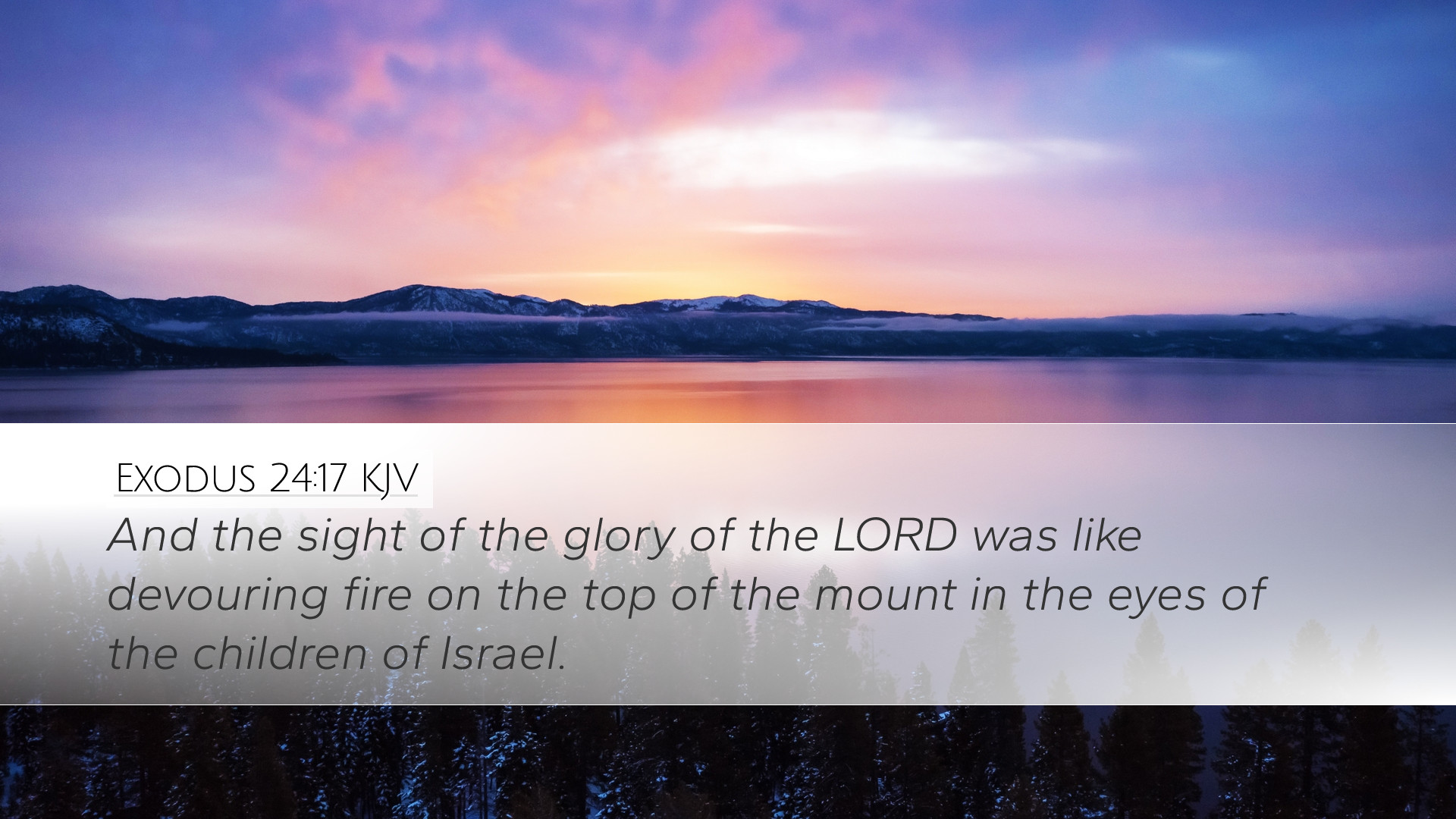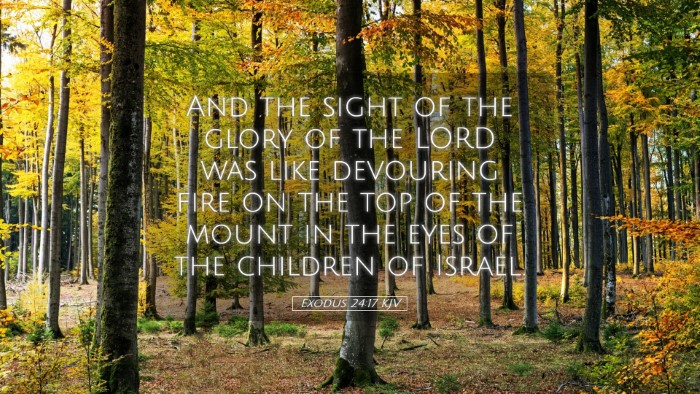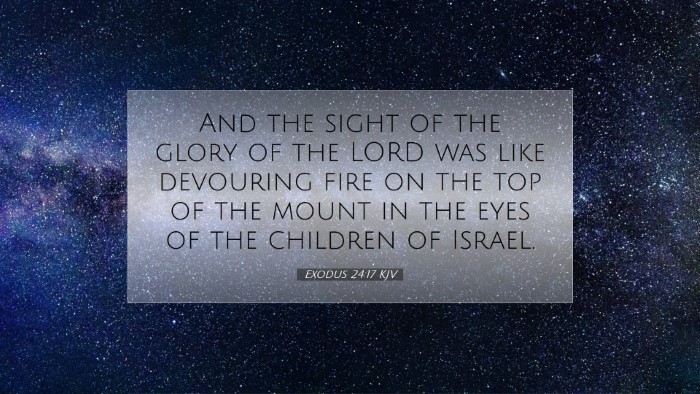Exodus 24:17 Commentary
Bible Verse: "And the sight of the glory of the Lord was like devouring fire on the top of the mount in the eyes of the children of Israel."
Introduction
The verse Exodus 24:17 represents a significant moment in the narrative of Israel’s encounter with God on Mount Sinai. This commentary synthesizes insights from prominent public domain scholars, including Matthew Henry, Albert Barnes, and Adam Clarke, offering a comprehensive understanding aimed at pastors, students, theologians, and Bible scholars.
The Context of Exodus 24
Exodus 24 describes a pivotal event where Moses ascends Mount Sinai to receive the Law from God. This chapter illustrates the divine covenant between God and Israel, showcasing the solemnity and holiness of this encounter.
- Covenantal Relationship: Here, God affirms His covenant with Israel, emphasizing His expectations and their responsibilities as His chosen people.
- Preparation for God's Presence: The Israelites are instructed to prepare themselves, highlighting the sacred nature of God's communication.
Analysis of "the sight of the glory of the Lord"
In Exodus 24:17, the phrase "the sight of the glory of the Lord" captures the overwhelming presence of God. Matthew Henry emphasizes that God reveals Himself as a fire, a metaphor that conveys both His purity and His judgment.
- Symbol of Purity: Fire purifies, and in the context of God's presence, it signifies His holiness that cannot abide sin.
- Symbol of Judgment: The notion of fire also reflects the judgment aspect of God, as He refines His people and sometimes consumes those who oppose Him.
Interpretation of "devouring fire"
The term "devouring fire" suggests an all-consuming power. Albert Barnes remarks that this imagery was intended to both awe the Israelites and instill a sense of reverent fear. The fire is not simply a light but an active force that consumes.
- Impact on Fear and Reverence: This powerful imagery serves to induce a healthy fear of God, reminding the Israelites that they stand before the Almighty.
- Contrast with Human Limitations: The devouring nature of fire illustrates humanity's fragility in light of divine holiness.
Understanding "in the eyes of the children of Israel"
The latter portion of the verse—“in the eyes of the children of Israel”—is significant. Adam Clarke notes that this phrase emphasizes the public nature of God's revelation. The entire community witnessed this phenomenon, reinforcing the collective experience of God's glory.
- Collective Revelation: The perception of God's glory was not limited to Moses but shared among all Israel, highlighting their communal relationship with God.
- Enhancing Accountability: This shared vision enhances their responsibility to respond to God's covenant and His commandments.
Theological Implications
This verse holds profound theological implications, emphasizing God's transcendence and immanence. It serves as a reminder that God's glory is both approachable through covenant but also fearsome in His holiness.
- Transcendence of God: God's glory as a consuming fire serves as a testimony to His otherness, highlighting the gap between divine holiness and human sinfulness.
- Immanence of God: Yet, He draws near to His people, establishing a relationship where He communicates directly with them.
Application to Contemporary Faith
Understanding Exodus 24:17 is crucial for contemporary believers. It challenges them to approach God with reverence, recognizing His holiness. The consuming fire symbolizes God's active involvement in the life of His people, urging them toward purity and devotion.
- Reverence in Worship: Modern worship must be conducted with an awareness of God's holiness, fostering a spirit of reverence.
- Responsibility as God's People: Just as the Israelites were accountable for their response to God's glory, so too are believers called to live out their faith diligently.
Conclusion
Exodus 24:17 serves as a powerful testimony to the glory of God revealed at Sinai. Through the rich insights from Matthew Henry, Albert Barnes, and Adam Clarke, we gain a deeper understanding of the nature of God as both a consuming fire and a covenant-keeping God. This balance of fear, reverence, and relational intimacy remains vital for the faith community today.


